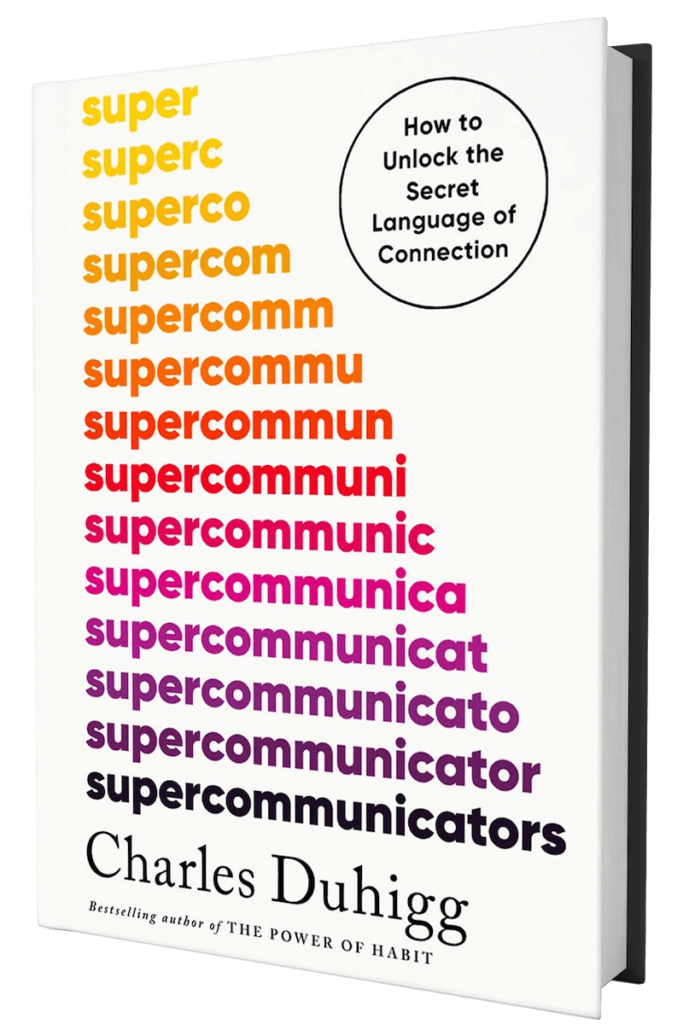Supercommunicators by Charles Duhigg (author of The Power of Habit) explores the science behind effective communication, revealing how mastering practical, emotional, and social conversations can transform anyone into an exceptional communicator. Through engaging stories and research, Duhigg provides insights and tools to help readers connect more deeply in both personal and professional settings.
Before crafting good prose, content strategists and marketing writers apply timeless rhetorical principles that have guided influential thinkers and leaders throughout history. Excellent sentences come later. Such expertise is invaluable in any organizational context, and central to the daily work of any writer. Effective communication strategies in modern marketing and business rely heavily on the art of persuasion, in fact, particularly the three key appeals of classical rhetoric: ethos, logos, and pathos.
- Ethos (credibility): Establish trust through a deep understanding of the subject matter and audience.
- Logos (logic): Construct compelling arguments based on reason and evidence.
- Pathos (emotion): Connect with audiences on an emotional level, driving engagement and action.

A deeper understanding of rhetoric helps hone three skills:
—Strategic Thinking (analyzing situations, anticipating objections, and crafting persuasive narratives)
—Audience Awareness (understanding and adapting to diverse stakeholders)
—Clear Communication (distilling complex ideas into precise, actionable language)—that are indispensable for effective leadership.
Understanding the essential elements of rhetoric and becoming a better communicator sharpens any professional’s business acumen, regardless of their industry. In my former life as an English professor, I observed a persistent gap in rhetorical skills across all of my courses, regardless of the students’ backgrounds, chosen majors, or interests. First-semester students or graduating seniors—it didn’t matter. Such students eventually become working professionals who navigate everyday rhetorical situations with limited control, particularly in professional contexts where most communication with colleagues and clients is primarily conducted in writing (via emails and online exchanges in Slack, Teams, et al.).
The pressure to respond swiftly might be partly to blame, or it could be an incomplete understanding of the audience’s circumstances, the absence of nonverbal cues in digital messages, organizational hierarchies influencing communication dynamics, or other factors. Such challenges can leave individuals struggling to convey their intended messages effectively, which can lead to additional misunderstandings or introduce friction.
Studies reveal that poor communication can be tied to significant financial losses within some companies. One study found that large corporations (100,000 employees or more) lose an average of $62.4 million annually to poor communication, while another reported that even smaller firms (100 employees) can still lose up to $420,000 yearly from miscommunication.
And that’s just from poor internal communication. Marketing your brand’s message badly can be even costlier.
When I considered leaving academia, friends across a variety of industries lamented the scarcity of strong writers in their workplaces. Every business desperately needs professionals who can articulate and advocate for its ideas, services, or products. Today’s communication maze demands incisive reading, precise writing, active listening, digital fluency, and cultural acumen. In other words, everyone needs a versatile toolkit built around the skills exemplary writers already possess in order to elevate our writing prowess, mitigate miscommunication risks, and cultivate better relationships with colleagues, clients, vendors, and prospects.
Perhaps not everyone has the ability to communicate clearly and persuasively at the level of the best writers, but smart leaders recognize the immense value of their organization’s savviest communicators—those professionals who excel at analyzing a set of complex factors, synthesizing that information, and articulating ideas with clarity and persuasion. Investing in their development enhances an organization’s overall ability to be effective and saves money over time.
Good writers are really—by necessity—content strategists, which is why the term “wordsmith” has always seemed reductive and misguided. The image of someone hammering away at their keyboard the way a blacksmith shapes metal seems to ignore the profound intellectual and strategic work at the heart of effective communication. True rhetorical expertise is invaluable.
By dismissing your best communicators and regarding their output merely as clever phrasing or linguistic decoration, we belittle well-crafted communication as an essential business skill. If you want to achieve your business goals, you should decide to value good writing and strategic communication. If not, you risk silencing the very voices that could lead your business to greatness, as no business strategy ever reaches its full potential without the deft touch of a skilled writer to illuminate its path and ignite its power.
If you are a skilled writer—or have one on your team already—you might be set. If not, we should talk.
You Might Also Like:
- The Quiet Evolution of UX/UI
- Data Analytics: The Driving Force Behind Modern Marketing
- Website That Drives Growth: Key Metrics
- Debunked: 10 Common SEO Myths
Sign up for Bird Feed, our monthly newsletter, to receive articles like this in your inbox.